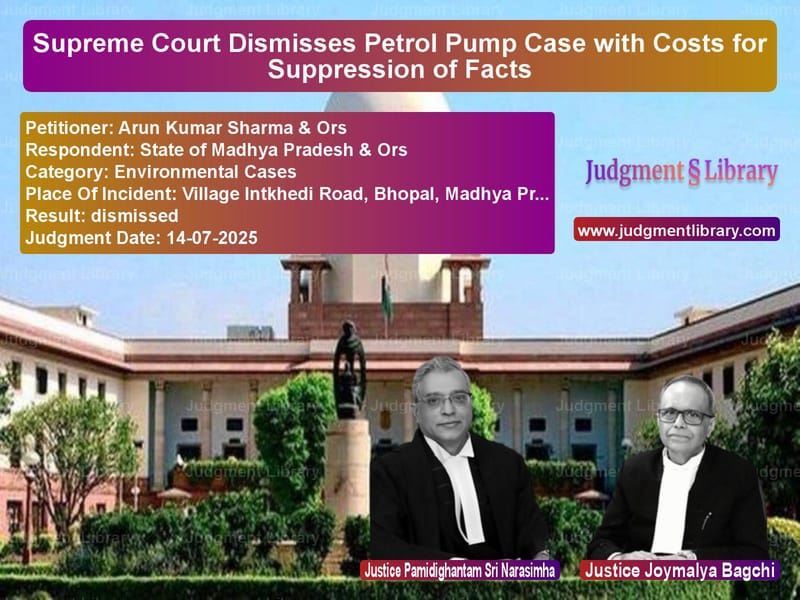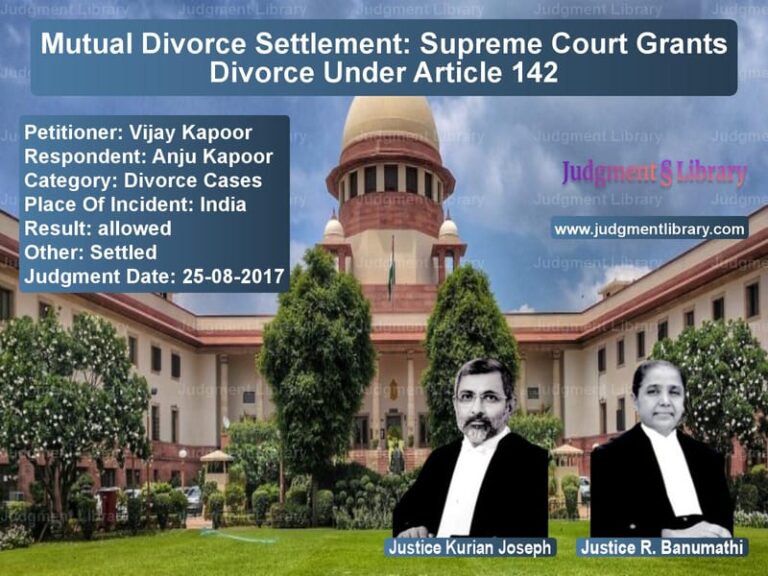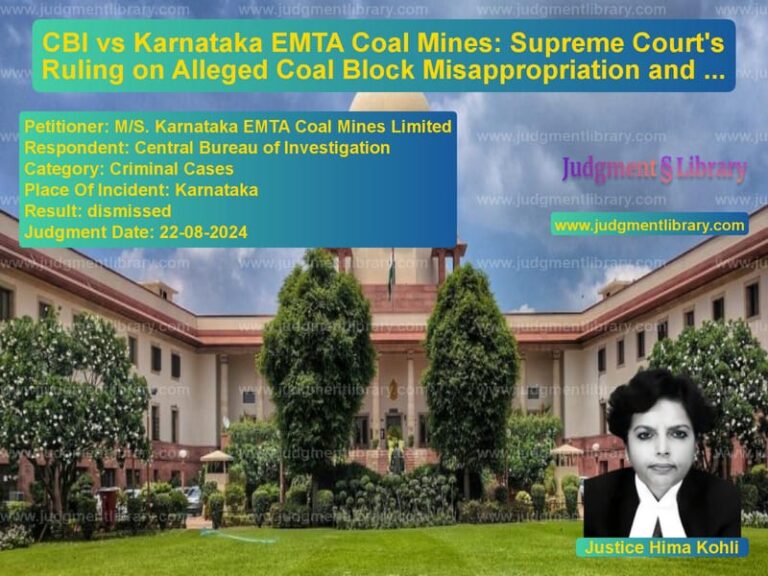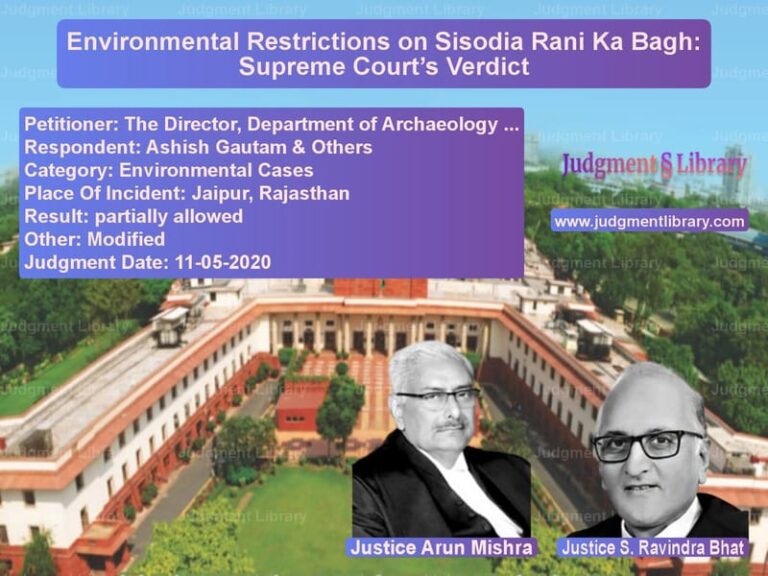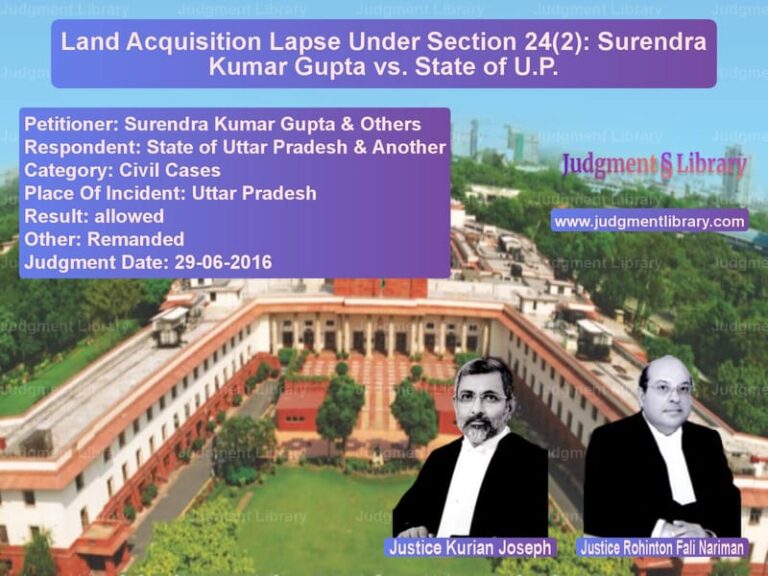Supreme Court Dismisses Petrol Pump Case with Costs for Suppression of Facts
In a significant judgment emphasizing the importance of transparency in legal proceedings, the Supreme Court of India has dismissed civil appeals challenging the establishment of a petrol pump in Bhopal, Madhya Pradesh, while imposing costs of Rs. 50,000 on the appellants for suppressing material facts and initiating parallel proceedings. The judgment, delivered on July 14, 2025, serves as a stern reminder that access to justice must be coupled with integrity and bona fide intentions.
The case originated when three appellants—Arun Kumar Sharma and others—approached the National Green Tribunal (NGT) seeking to restrain respondents from setting up a petrol pump at Khasra No. 109/1/2 on SH 10 Bhopal to Berasia road in Village Intkhedi Road. The appellants challenged the consent to operate dated July 19, 2023, issued by the Madhya Pradesh Pollution Control Board and the No Objection Certificate (NOC) dated February 7, 2024, issued by the Collector.
The appellants argued that “establishment of petrol pump in a residential area poses multifaceted risks and hazards, both to the environment and to the health and safety of the residents.” They contended that “the CPCB Guidelines clearly stipulate the minimum distance requirements for setting up petrol pumps from residential areas, school, hospitals, and other sensitive establishments.” Specifically, they claimed that “the Said Land fails to comply with these crucial safety regulations, thereby jeopardizing the lives and well-being of the residents.”
The NGT constituted a Joint Committee to examine the factual aspects of the case. The committee’s report revealed crucial findings that significantly undermined the appellants’ case. The committee found that “the residential colonies near the petrol pump as mentioned in the petition are unauthorized residential colonies and as per the record of Revenue department there is no designated residential colony within 50 meters distance from dispensing unit of petrol pump.” Furthermore, the committee reported that “there are no schools or hospitals exist within 50 meters distance from the petrol pump” and that “the nearest habitation of people around the Village is 600 meters away from the Petrol Pump.”
Based on these findings, the NGT dismissed the original application, observing that “the matter with regard to change of user of land or validity of the colony or construction of the houses are within the domain of revenue authorities. Only thing which is required to be considered is compliance of the guidelines issued by the CPCB for establishment of petrol pump and this application has been filed on the ground of distance which was found to be not in violation of any guidelines and thus this application is not maintainable and not tenable.”
When the matter reached the Supreme Court, the respondents raised crucial preliminary objections about the appellants’ conduct. They alleged that the appellants had suppressed the fact that they had initiated parallel proceedings before the High Court and that the litigation was not bona fide but intended to subserve the personal interest of appellant no. 3, who was conducting a rival business.
The Supreme Court, in its analysis, made several significant observations about the appellants’ conduct. The court noted that “the appellants want this Court to believe that the scope of the original application before the NGT is confined only to violation of ‘Siting Criteria of Retail Outlets’ as mentioned in the office memorandum dated 07.01.2020 issued by the Central Pollution Control Board.” However, upon examination, the court found this contention to be “an afterthought and also lacks candour.”
The court extensively compared the grounds raised in the original application before the NGT with those in the subsequent writ petition before the High Court. The Supreme Court observed: “Having extracted hereinabove the specific ground in the civil appeals challenging the NOC on the ground that it is granted without obtaining the development permission from the town and country planning authority, which requirement arises under the M.P. Nagar Tatha Gram Nivesh Adhiniyam, 1973, the submission that the proceedings before NGT were confined only to ‘Siting Criteria of Retail Outlets’ is false and is hereby rejected.”
The court further noted that “the appellants have initiated identical and parallel proceedings” and that “there is an overlap and parallel challenges to the same NOC dated 07.02.2024.” The judgment emphasized that “even assuming that the scope and ambit of challenge is distinct, which we have demonstrated that they are not, the appellants should have taken the permission of this Court for initiating the writ petition. The minimum that the appellants could have done and infact should have done is to inform this Court about initiation of the fresh proceeding challenging the NOC dated 07.02.2024 before the High Court, particularly when the civil appeals are pending consideration.”
In its concluding remarks, the Supreme Court made several important observations about the importance of maintaining integrity in legal proceedings. The court stated: “Access to justice is inextricably connected to maintaining integrity in the process of invocation and conduct of remedial proceedings before Courts and Tribunals.” This principle formed the foundation of the court’s decision to dismiss the appeals with costs.
The court concluded that “the appellants have suppressed the necessary facts and there is reason to believe that the proceedings before NGT were initiated to subserve business interest of appellant no. 3.” Accordingly, the civil appeals were dismissed with costs quantified at Rs. 50,000 payable to the Supreme Court Advocates on Record Association within four weeks.
However, in a balanced approach, the court clarified that it had “not examined the issue relating to violation of M.P. Nagar Tatha Gram Nivesh Adhiniyam, 1973 raised in the writ petition pending before the High Court” and directed that “said writ petition will be heard and disposed of on its own merits and without being influenced by observations made by this Court in the present case.”
This judgment serves as an important precedent regarding the conduct of litigants in environmental matters. It reinforces the principle that environmental litigation must be pursued with bona fide intentions and not as a tool for business rivalry or personal gain. The court’s emphasis on transparency and disclosure of parallel proceedings underscores the importance of maintaining the integrity of judicial processes.
The decision also highlights the Supreme Court’s role in ensuring that specialized tribunals like the NGT are not misused for purposes other than environmental protection. By imposing costs for suppression of facts and initiation of parallel proceedings, the court has sent a strong message about the consequences of abusing the legal process.
This judgment will undoubtedly have far-reaching implications for environmental litigation in India, particularly in cases where commercial interests may be disguised as environmental concerns. It establishes that while access to justice is fundamental, it must be exercised with honesty, transparency, and bona fide intentions, especially in matters involving environmental protection where public interest is paramount.
The Supreme Court’s approach in this case demonstrates its commitment to ensuring that environmental justice is not compromised by ulterior motives or procedural manipulations. By upholding the NGT’s decision based on factual findings while condemning the appellants’ conduct, the court has balanced environmental concerns with the need for judicial integrity.
Petitioner Name: Arun Kumar Sharma & Ors.Respondent Name: State of Madhya Pradesh & Ors.Judgment By: Justice Pamidighantam Sri Narasimha, Justice Joymalya Bagchi.Place Of Incident: Village Intkhedi Road, Bhopal, Madhya Pradesh.Judgment Date: 14-07-2025.Result: dismissed.
Don’t miss out on the full details! Download the complete judgment in PDF format below and gain valuable insights instantly!
Download Judgment: arun-kumar-sharma-&-vs-state-of-madhya-prad-supreme-court-of-india-judgment-dated-14-07-2025.pdf
Directly Download Judgment: Directly download this Judgment
See all petitions in Environmental Cases
See all petitions in Public Interest Litigation
See all petitions in Legal Malpractice
See all petitions in Other Cases
See all petitions in Contract Disputes
See all petitions in Judgment by P.S. Narasimha
See all petitions in Judgment by Joymalya Bagchi
See all petitions in dismissed
See all petitions in supreme court of India judgments July 2025
See all petitions in 2025 judgments
See all posts in Environmental Cases Category
See all allowed petitions in Environmental Cases Category
See all Dismissed petitions in Environmental Cases Category
See all partially allowed petitions in Environmental Cases Category

